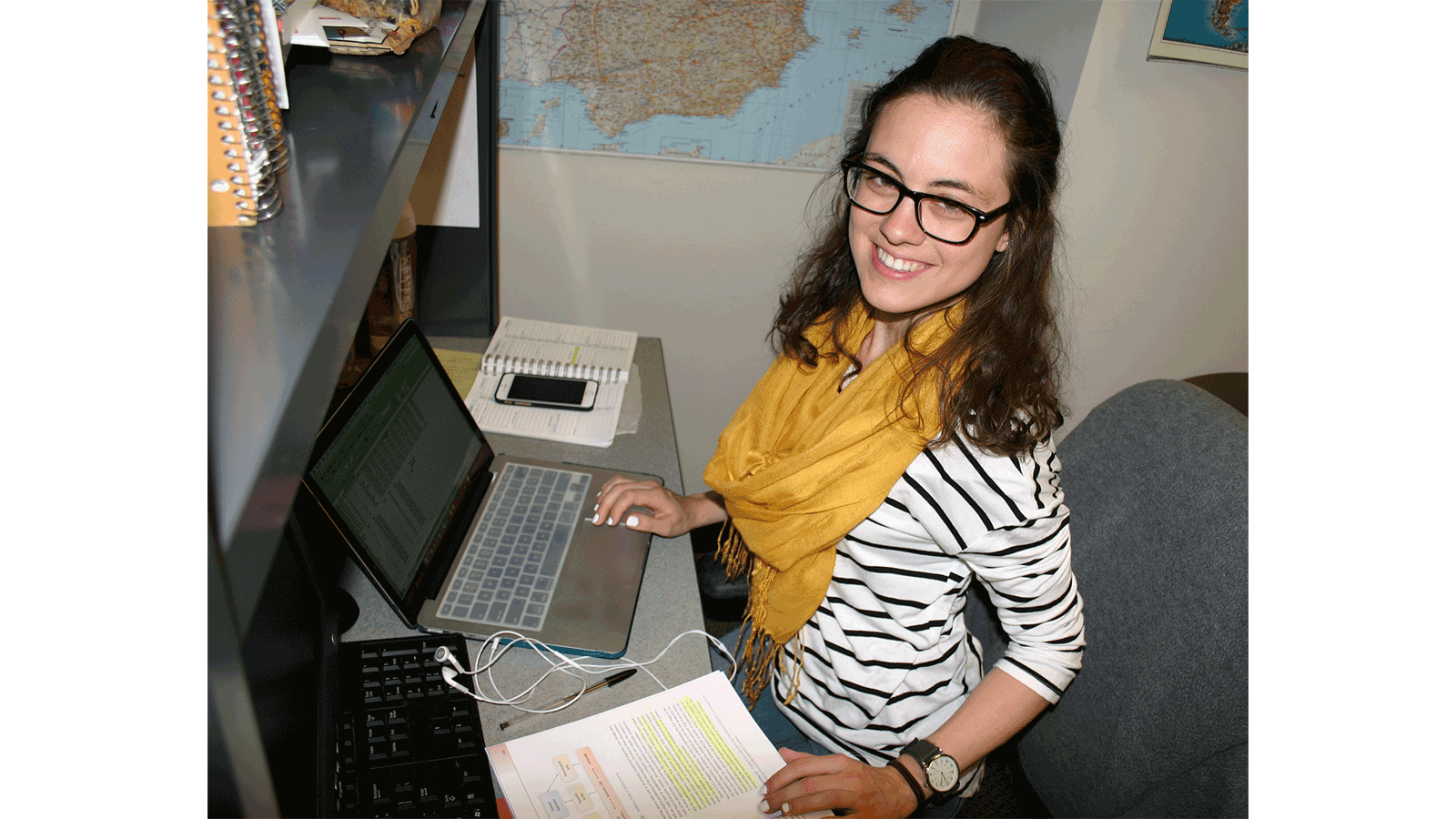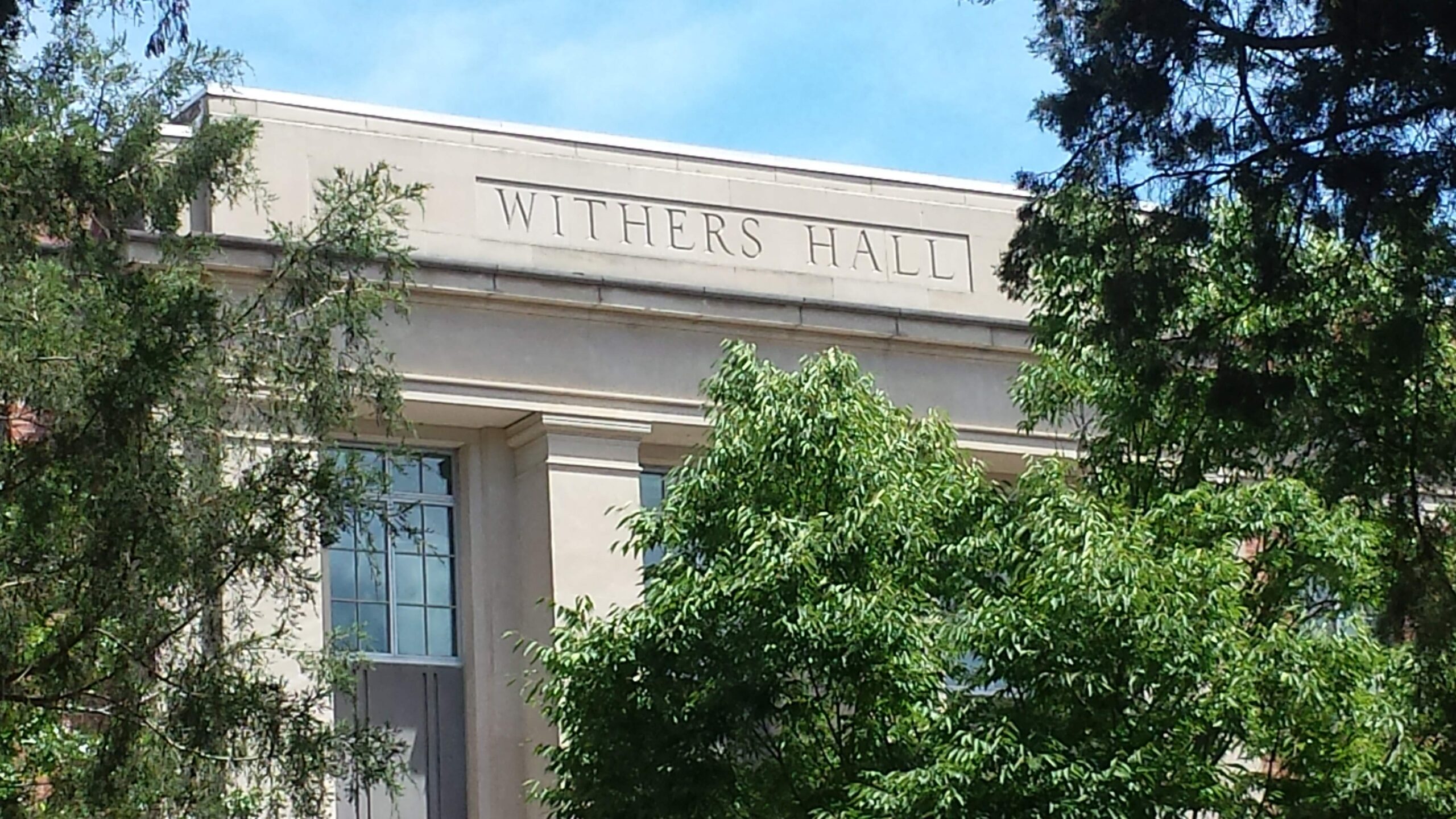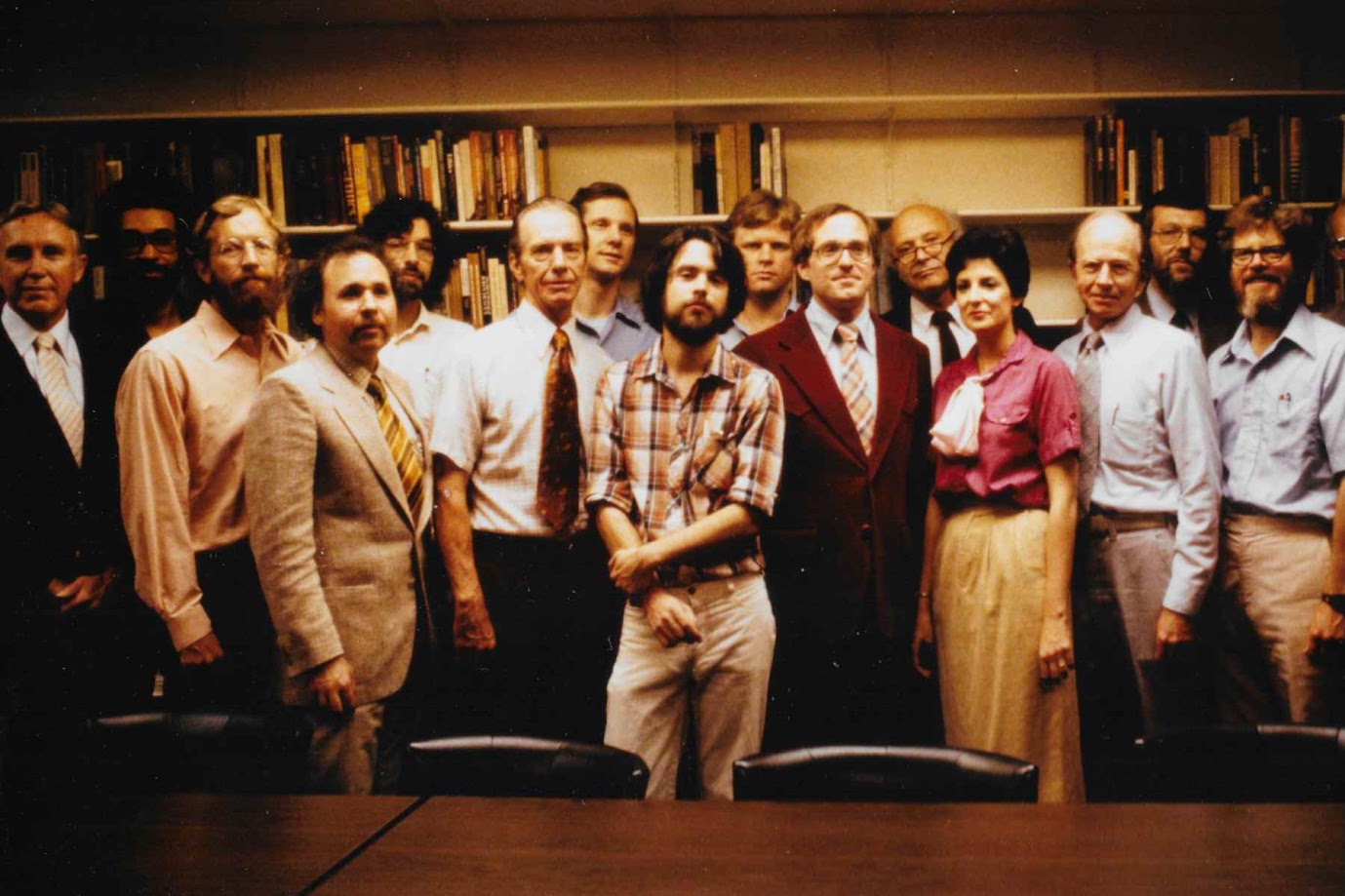Hispanic Linguistics and Cognitive Science: Grad Student Pursues Her Passions

What happens when you cross graduate studies in Hispanic linguistics with a graduate minor in cognitive science?
Ask Lindsey Chandler: she’s doing it at NC State.
Lindsey Chandler is fascinated by the workings of the brain in learning and producing language. She has melded her interests in cognition, language acquisition and Spanish through graduate studies in both Hispanic linguistics and cognitive science at NC State.
In this Q&A, Chandler shares what led her to NC State, how her graduate studies relate to her diverse interests, and what the future holds.
Q: What did you study before beginning graduate school at NC State?
A: I first wanted to be an art therapist. I took courses in psychology and art, and kept up with Spanish as a minor because I enjoyed learning about the language. Eventually it turned into a second major.
Q: What concentrations are you focusing on at NC State?
A: In the Department of Foreign Languages and Literatures, I take courses that focus on Hispanic linguistics, particularly sociolinguistics, language change and language contact. I also take courses on phonetics and applied linguistics. Students in the department frequently enroll in English linguistics courses to supplement the Spanish ones, which I think is great. Within the Cognitive Science minor, I have the additional opportunity to take courses in the departments of Psychology and English linguistics, and if I so choose, Computer Science, Philosophy and even Zoology.
Q: What led you to study these areas?
A: By the time I was applying to graduate school, I had come to realize that cognition as a psychological subfield was what truly held my attention. The role of the brain in learning and producing a language has always fascinated me. Being in both departments allowed me to realize how much overlap there can be, and a program in Hispanic linguistics that involves courses in Psychology came to be the perfect fit.
Q: Hispanic linguistics and cognitive science sound like specialized fields. How do they relate to each other?
A: There is a surprising amount of overlap. It is possible to use theories that one learns in the cognitive science concentration in courses within Hispanic linguistics. For example, syntax is important in language just as it is for understanding cognition. Cognitive science deals greatly with language acquisition, memory and learning, which I find especially relevant when I am studying Hispanic linguistics through the lens of bilingualism or second language acquisition. There are even social theories that overlap both fields.
Q: What research have you done during your academic career, and how has it impacted your learning experience?
A: I started serious linguistic research in my last few months as an undergraduate at Appalachian State; I examined cognitive processes in word recognition of students learning Spanish. At NC State, I have been able to expand my research repertoire to study linguistic variation, phonetics and even cognitive grammar. I feel much more informed about the field of Hispanic linguistics, as well as more informed about how cognition plays a role in language processing, especially for bilinguals or students learning another language. And the multidisciplinary approach I’ve been able to take is helping me apply my knowledge to a handful of different areas outside the concentrations.
Q: What do you hope to do after you complete your master’s degree?
A: My primary goal is to pursue a doctoral degree, so please keep your fingers crossed for me! Through my education and research, my ultimate goal is to work at a university or in a program that recognizes and pursues the importance of the combined research within the fields of psychology – or cognitive science – and language studies, particularly Spanish, with its ever-increasing use in the United States.
Q: What led you to choose NC State for graduate school?
A: One of my most helpful mentors at Appalachian State suggested that I look into the program and put me in touch with his colleagues during the application process. I grew up in Cary, so I was already very familiar with the university. NC State had the program that offered me the most opportunities and study benefits. It almost felt like kismet to find and be accepted to a program so close to home.
Q: What is your advice to undergraduate students considering graduate school?
A: My biggest piece of advice is to do research about the programs to which you want to apply. Consider all that a university or program has to offer – minors, interdisciplinary studies, and yes, financial packages – and think about how you can make the most out of your time at a particular school. Additionally, getting to know professors during the application process really affected my decision. The earlier you establish yourself, the more options you can have for future research, mentorship or even external opportunities such as community outreach. Simply put, ensure that the program to which you are applying, as well as its extension opportunities and faculty, have everything you want them to have, and as I have found out, maybe even more.


